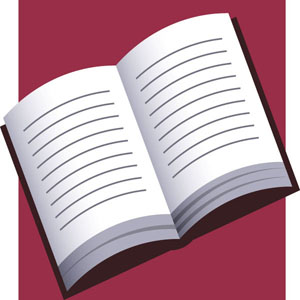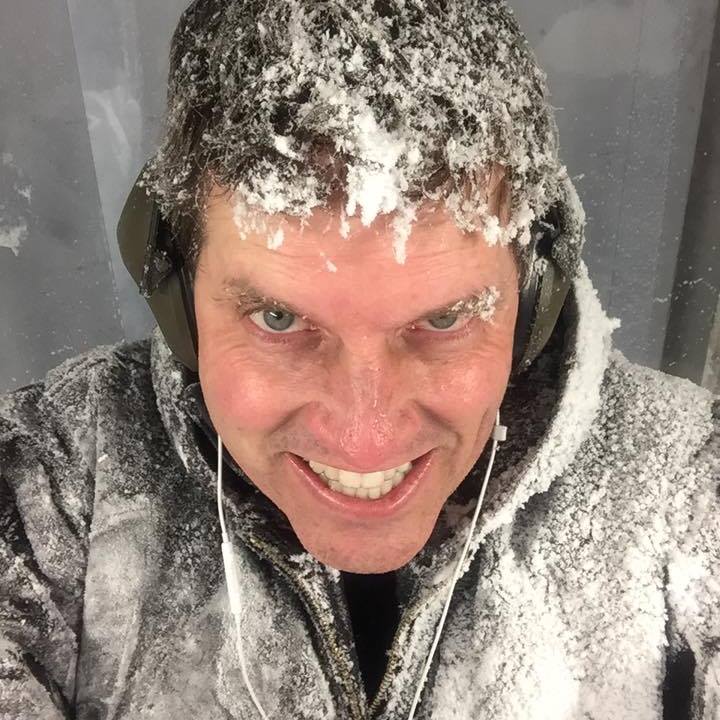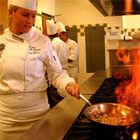
LiteraryScout
New York, NY
Female, 0
Literary scouts work with foreign publishers to help determine which American books they should acquire. We spend our days (and nights!) reading manuscripts, writing reports, meeting with agents and publishers, and speaking with clients to keep them apprised of developments. Scouts don’t make much money, but the perks and fun help make up for that.
Probably two is the max. Keep in mind manuscripts may be between 250-800+ pages. I'm a pretty quick reader and could maybe somehow manage three, but you also want to be paying enough attention to what you're reading that you can write a 3 page report on it and discuss it in detail.
Is there a particular theme? If we are just talking in terms of great books that provide high schoolers a range of genres and concepts and are extremely readable, I'd go with the below. 1984 - Cinematic and an engulfing read that demonstrates the dangers of fascist governments. Also a good jumping off ground to discuss our society's willingness to destroy our own privacy with Facebook and such. Rebecca -A beautiful gothic novel that is well-written and creepy. It shows "literature" doesn't have to be intimidating. Go Tell It on the Mountain - Good jumping off point to discuss race, social class, and generational confusions between parents and kids. Death Of a Moth - Collection of short, very readable essays that provide a good example for a personal essay writing lesson. My Name is Asher Lev - Exposure to a world most kids are totally unfamiliar with and a good opportunity to discuss kids being torn between getting their parents' approval and finding their own identity.
There are very, very few scouting agencies, so positions are hard to come by. Try talking to any agents you know and looking on Publisher's Marketplace and Media Bistro.
I would say that a successful scout needs good taste, an understanding of what makes a manuscript commercially viable, a nose for tracking down sources for the next big thing, and the ability to form strong, long-lasting bonds with clients. When clients are in town it's the scouts who typically arrange their schedules, go to some meetings with them, and meet with them frequently throughout the day. During books fairs we spend days with each other, going out for drinks, dinners, more drinks, etc. That friendship is what keeps clients with scouts for years and may cause them to follow a scout who leaves an agency.
Ice Sculptor
 What was the raciest sculpture you ever made?
What was the raciest sculpture you ever made?
Bartender
 How often would you date customers?
How often would you date customers?
Chef
 Has anyone ever found anything gross in their food on your watch?
Has anyone ever found anything gross in their food on your watch?
There is the very rare story of a breakout self-publishing hit like The Shack, but it’s atypical. There are so many self-published books out there that it is almost pointless to spend time trying to weed out the good from the bad. This is why we really only work with agents and publishers. For example, scouts started reading The Shack only after it had been acquired by a large publishing house.
Scouts work for foreign publishing houses, but can also work for film companies to assist them in deciding what books might do well as movies.
I have to say that I really, really disliked Sarah's Key. The Tiger's Wife was pretty good, but didn't blow me away. A Visit from the Goon Squad was terrific, but the last few chapters really disappointed.
The one book that comes immediately to mind is The Shack. It's a super Christian book that sold tons and tons of copies. Few clients bought it because the subject matter didn't appeal to them.
It’s really the agent or editor’s job to provide a strong synopsis to a scout and convince us that of the huge pile of manuscripts to get through, theirs is a priority. A manuscript definitely does not need to start off with a punch to the gut if the writing is good. If the writing is bad, then it just needs to have a commercial enough synopsis that we know it will probably do well. For example, after The Da Vinci Code there were a ton of similar thrillers being read, after Kite Runner everyone was reading heart-wrenching novels about that region, and after Twilight it was a scout’s job to look for the next great vampire/werewolf book. Whether the writing is good or not, there has to be some commercial element to it. If no one is going to read it, then our clients are not going to acquire it. Because we work with an international audience, we also need to know what different regions love or hate, plus the individual tastes of the editors we work for. For example, Germans do not want outsiders writing about the Holocaust, the French are sick to death of the French Revolution and Napoleon, and Italians do not think anyone can write about their country as well as they can.
Like any job in publishing, step one is an unpaid internship. Publishing is a competitive field (despite the low pay) and the only real way in is to offer your services for free until you find someone willing to pay for them. Many people find themselves taking on a string of unpaid and then eventually paid internships before being able to land a full-time job. The best thing to do is start as early as possible during college. Although you may be able to intern at a university press, really to have a career you must live in New York or California, but New York is really preferable. This is a networking heavy industry, even though it’s populated by bookworms. If you love books, but aren’t up for schmoozing, it’s not the right industry for you.
Publishing houses tend to pay giant advances for the next "it" adult fiction novel these days. As a result they are very careful about what they purchase. Things tend to be safe and follow pretty specific formulas. There's more room for creativity in Young Adult writing and so that's one possible reason there's such an influx of attention to these series. The other possibility is that American adults aren't super smart and are overwhelmed by real literature. I don't mean there's anything wrong with reading YA stuff as part of a mix of books. The issue is when the books that make millions of dollars are primarily YA rather than adult novels.
I’d say literature. I don’t know of any scout with degrees in marketing. It’s a field made up of book lovers who love to shmooze and are curious to learn about other cultures. Remember, the most important thing is internships. Even if you can’t intern with a scout, try to get some experience working with a literary agent or publishing house.
We get all of our manuscripts from agents and publishers. Scouts do not accept unsolicited manuscripts. Unless it’s definitely being printed in the US, it is not part of our scope.
Nope. That's the responsibility of the American publishers working directly with the authors.
Do you have a specific question?
Scouts are only reading book manuscripts, but if there is a really notable piece of media that is preceding a likely book (like Randy Pausch’s Last Lecture video or the Dragon Mother’s media buzz), that’s certainly important to be aware of as well. Scouts need to be plugged into what topics are hot and what people are hungry for more of.
Studying literature and writing would be the most helpful. In particular, classes that focus on elements of novels such as constructing plot, developing characters, etc, would be useful for pinpointing the strengths and weaknesses of a manuscript. Your own personal reading experience is the most valuable education, though. Read a range of new and old highly regarded fiction and nonfiction books to familiarize yourself with what is so special about them. It is kind of like learning a language where after a point you can just feel when something is right even before you can use the academic knowledge to point to what exactly that is. Plus when you interview for those invaluable internships, it would be very helpful to be able to actually name books that you admire and show your familiarity with the literary world. Plan to start interning as soon as you can, even freshman or sophomore year if possible. The experience of learning from professionals and making contacts is the most important first step.
They have certainly become a sourcing ground for agents, but as scouts receive manuscripts only after they are already out on submission to US publishers or after they have been accepted for publication, we’re mostly interested in how big of a following the blog has. If a book has a built-in audience that’s certainly something our clients should know.
Perks include free galleys, business lunches and dinners, publishing parties, and yes, trips to bookfairs and occassionally to visit clients in their home countries.
You spend time getting to know specific editors tastes and what topics do or don't work in specific cultures.
That’s probably something a literary agent could answer better for you. My understanding is that you certainly should succinctly include information about other writing in your cover letter to an agent, but the process is to write a strong submission letter about your novel and enclose the first ten pages of the manuscript. Agents (or really the unpaid interns reading through the unsolicited submissions) will ask for more if they’re interested. The best thing of course is if you know someone in the industry. You’d be shocked if you saw the number of manuscripts agencies receive every day. The goal is to look at everything through fresh eyes, but we’re only human.
Literary agents have writers for clients and represent their work to publishing houses and film companies. Sometimes they will also work out the deals for their work to be sold to foreign publishing houses. That last part depends on whether the US publishing house that acquired the manuscript also acquired the foreign rights. If they did, then the publishing house works out who to sell it to and for how much, etc. Literary scouts have foreign publishing houses for clients and are concerned with finding the right books for them. Agents and scouts will meet regularly and the agent will talk to the scout about the books they're representing. If the agent is familiar with the editors at the scout's houses, he or she will be able to make tailored recommendations. The scout will typically read the recommended manuscript or any others that seem promising and report back to their client. If the client is interested, they typically will then deal directly with the agent to work out the deal. The scout is basically a consultant that keeps a pulse on what is being published in America and reads like fifty manuscripts so that client only has to read the one or two that would potentially be right for them.
-OR-
 Login with Facebook
Login with Facebook (max 20 characters - letters, numbers, and underscores only. Note that your username is private, and you have the option to choose an alias when asking questions or hosting a Q&A.)
(A valid e-mail address is required. Your e-mail will not be shared with anyone.)
(min 5 characters)
By checking this box, you acknowledge that you have read and agree to Jobstr.com’s Terms and Privacy Policy.
-OR-
 Register with Facebook
Register with Facebook(Don't worry: you'll be able to choose an alias when asking questions or hosting a Q&A.)